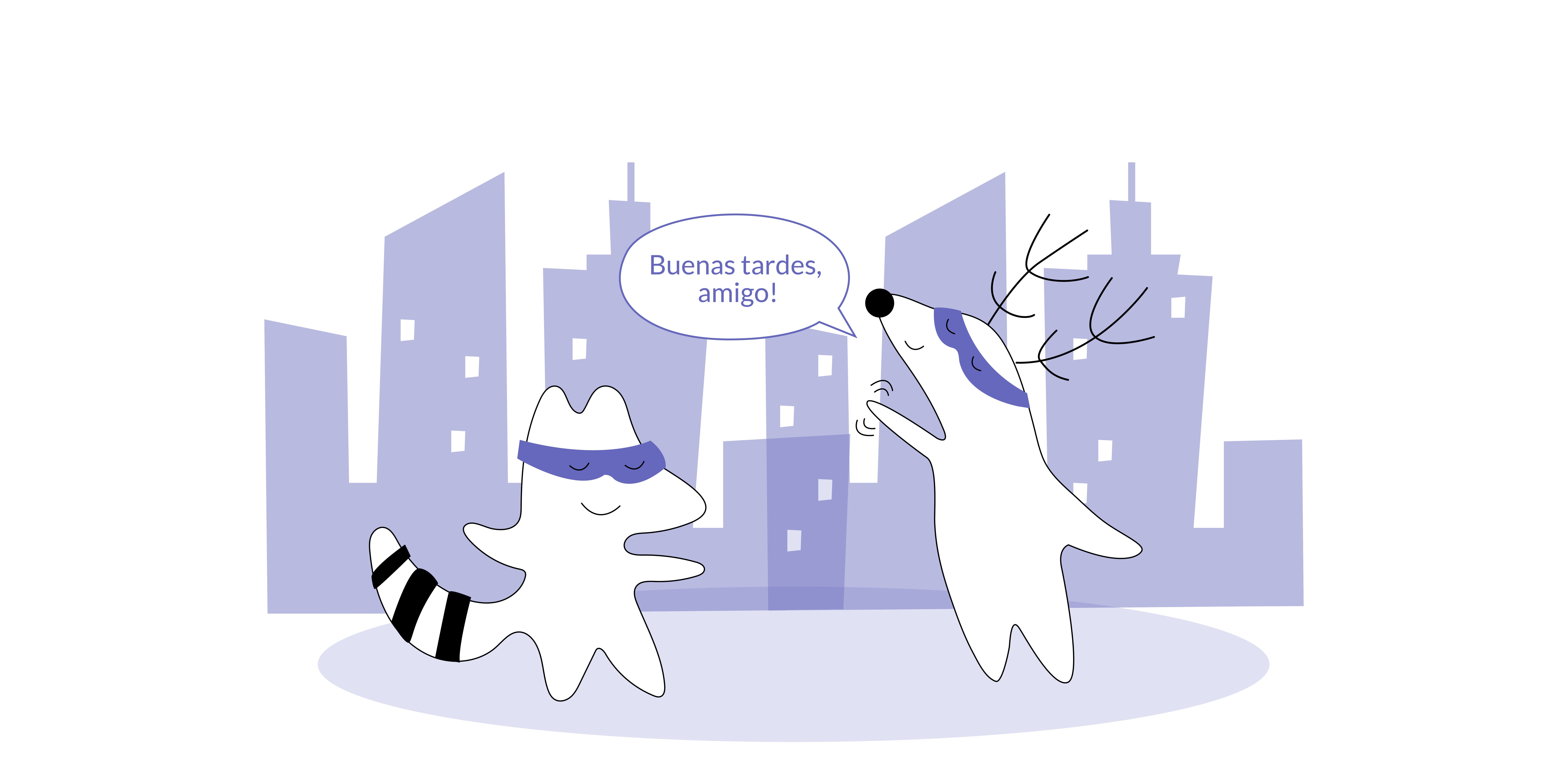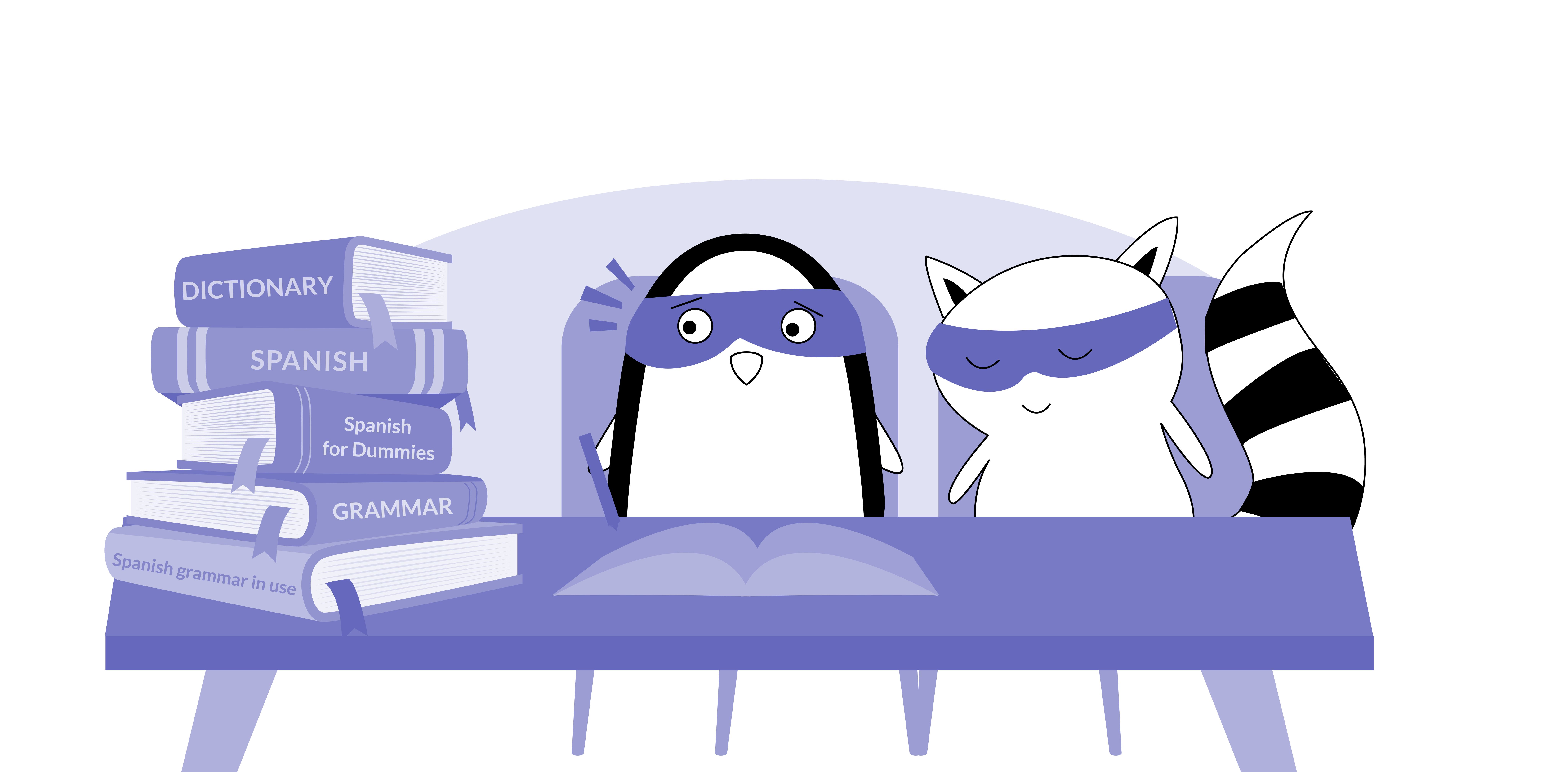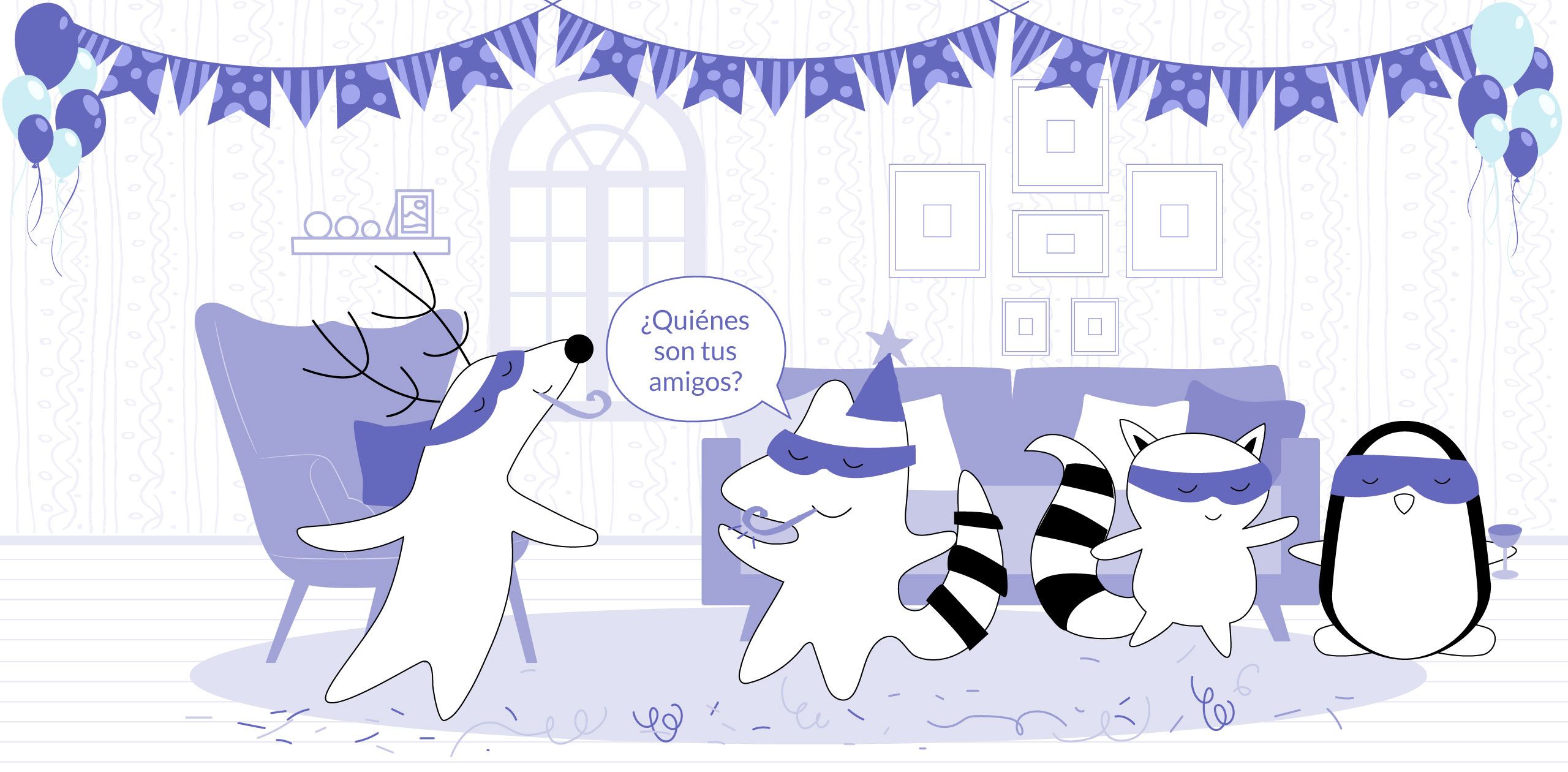
In order to freely communicate with Spanish speakers, you'll need to know how to ask questions. There are specific question words in Spanish that you should be familiar with in order to make sure your conversations flow smoothly.
The seven Spanish question words are: quién (who), qué (what), cuál, (which), dónde (where), cuándo (when), por qué (why), and cómo (how). In this article, we'll provide examples for each Spanish question word along with explanations of when and how to use them. Let's get started!
Learn Spanish with Langster
Quién – Who (Singular)
Quién is the Spanish word for "who." It has both singular and plural forms, but quién is used to ask about the identity of only one person, next to a verb in the singular as well. For example:
Spanish
English
Quién eres?
Who are you?
¿Quién es tu hermano?
Who is your brother?
¿Quién es el presidente de México?
Who is the president of Mexico?
If you need to say “whose,” you would use de quién. Like this:
Spanish
English
¿De quién es este bolígrafo?
Whose pen is this?
Quiénes – Who (Plural)
Quiénes is the plural form of “quién." It is used to ask about identity when there is more than one person around. Note that you should use it together with a verb in the plural form.
For example:
Spanish
English
¿Quiénes son esas personas?
Who are these people?
¿Quiénes son tus amigos?
Who are your friends?
¿Quiénes son los alumnos de su clase?
Who are the students in your class?
Qué – What
Qué is the Spanish word for "what," and it is one of the most commonly used words in the Spanish language overall. It’s because it can be used not only to ask about the identity of a thing but also its purpose and many other things.
Here are a few handy examples:
Spanish
English
¿Qué es esto?
What’s this?
¿Qué tal?
What’s up?
¿Qué quieres?
What do you want?
¿Qué haces?
What are you doing?
¿Qué debería comer?
What should I eat?
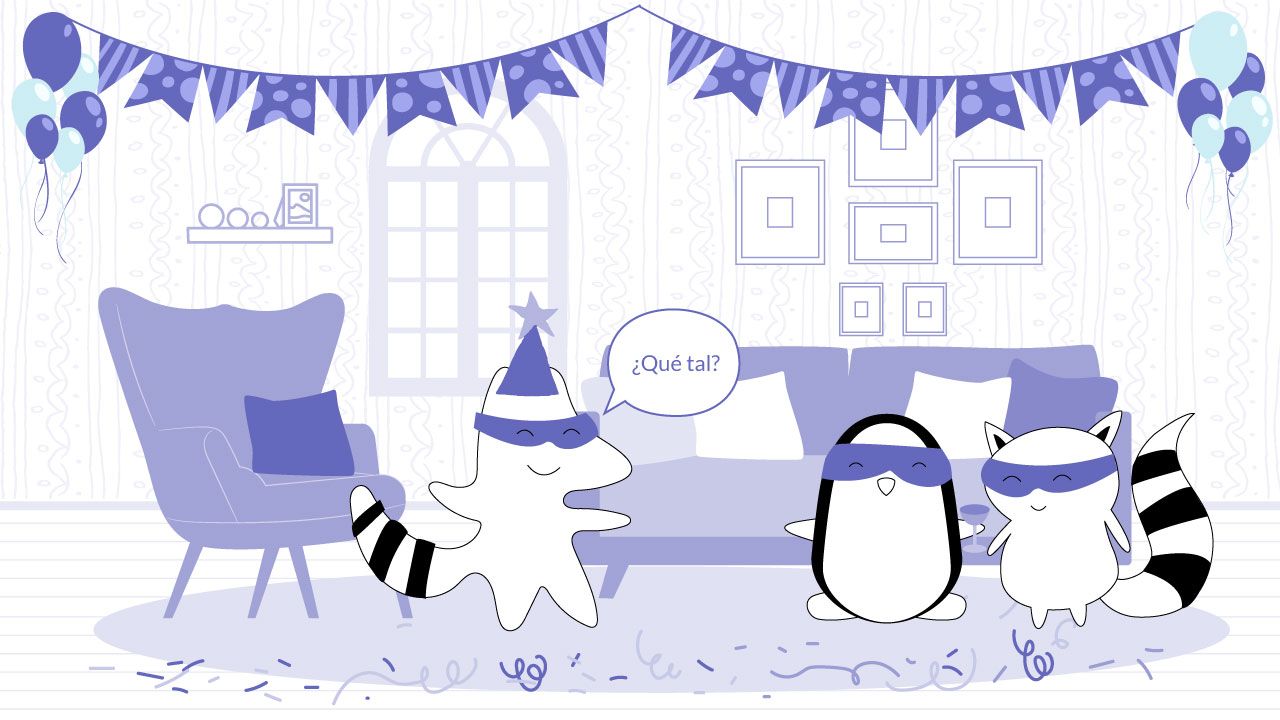
Cuál – Which (Singular)
Cuál is another Spanish interrogative that has both singular and plural forms. Cuál means "which." It requires you to select one option from a larger group of potential answers.
For example:
Spanish
English
¿Cuál manzana quieres?
Which apple do you want?
You can also translate it into “what.” Is there a difference? In contrast to qué, cuál implies that there can be many possible answers.
Spanish
English
¿Cuál es tu libro favorito?
What’s your favorite book?
Cuáles – Which (Plural)
Cuáles is the plural form of "cuál," so you need to ensure that the question word agrees in number and gender with both noun and verb. Like here:
Spanish
English
¿Cuáles son tus hobbies?
What are your hobbies?
Dónde – Where
Dónde is the Spanish word for "where." It is used to ask about the location of a person, place, or thing. This question word will be very useful during traveling to Spanish-speaking countries. You can use this word to ask for directions and avoid getting lost.
Here are a few examples:
Spanish
English
¿Dónde estás?
Where are you?
¿Dónde se encuentra el baño?
Where is the bathroom?
¿Dónde está la farmacia?
Where is the pharmacy?
In addition, you can use this word in the combination ¿De dónde? to say “from where?” or ¿A dónde?, which means “to where?” For example:
Spanish
English
¿De dónde eres?
Where are you from?
¿A dónde vas?
Where are you going?
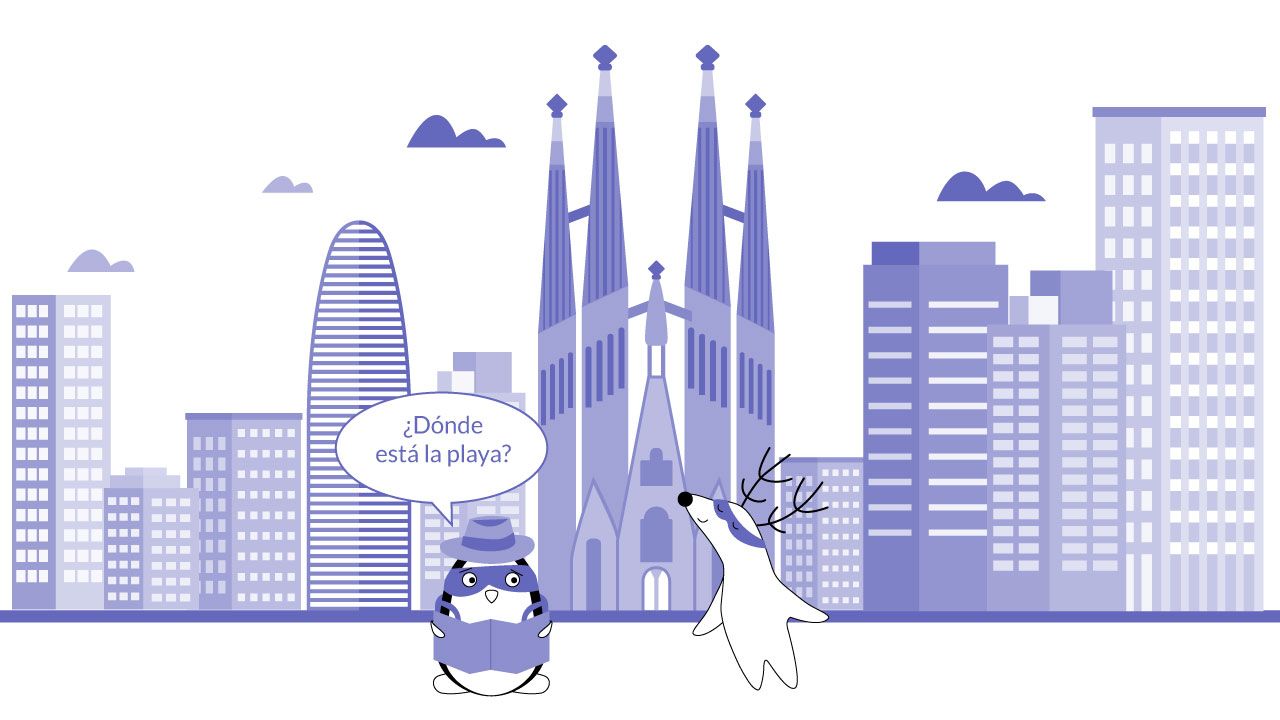
Cuándo – When
Cuándo means "when" in Spanish. It is used in situations when you want to ask about the time, day, or year when an event takes place. Like these:
Spanish
English
¿Cuándo es tu cumpleaños?
When is your birthday?
¿Cuándo llegarán los invitados?
When will the guests arrive?
¿Cuándo volverás?
When will you come back?
Por qué – Why
Por qué is the Spanish word for "why." It is used to ask about the reason why something happens or exists — a motive for an action.
For example:
Spanish
English
¿Por qué llora el niño?
Why is the child crying?
¿Por qué el cielo es azul?
Why is the sky blue?
¿Por qué no vas a la fiesta?
Why aren't you going to the party?
Alternatively, you can say para qué, the literal translation of which is “in order to what?”. For example:
Spanish
English
¿Para qué estudias español?
Why do you study Spanish?
Cómo – How
Cómo means "how" in Spanish. It is used to ask about the manner, means, or degree to which something happens or is done.
Here are a few examples:
Spanish
English
¿Cómo estás?
How are you?
¿Cómo te llamas?
What's your name? (Literally: How do you call yourself?)
¿Cómo se dice "thank you" en español?
How do you say "thank you" in Spanish?
You can find the answer to the last question in our dedicated post to multiple ways of saying “thank you” in Spanish.
But, how do you say “How much?” or “How many?” in Spanish? Great question!
The interrogatives cuánto, cuántos, cuánta, and cuántas can all be used to say “how much” or “how many.” But, when to use which? The only rule that you have to remember here is that the interrogative needs to agree in gender and quantity with the noun that follows it. Here’s a quick breakdown:
- ¿Cuánto? + singular masculine noun
- ¿Cuántos? + plural masculine noun
- ¿Cuánta? + singular feminine noun
- ¿Cuántas? + plural feminine noun
Here are examples for each case:
Spanish
English
¿Cuánto cuesta este libro?
How much does this book cost?
¿Cuántos hijos tienes?
How many children do you have?
¿Cuánta leche quieres?
How much milk do you want?
¿Cuántas manzanas hay?
How many apples are there?
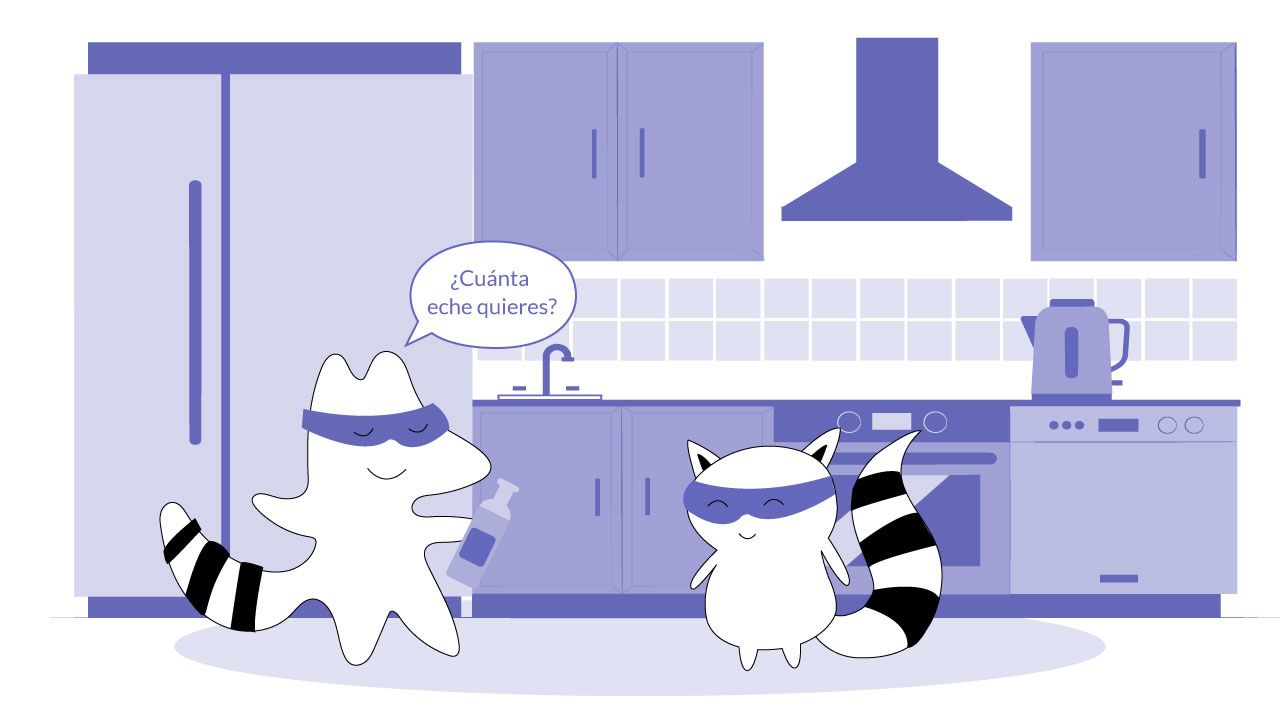
Grammar Note: How to Form Spanish Questions?
The first thing you notice about Spanish questions is the punctuation difference. In Spanish, questions typically start with an upside-down question mark and end with a regular one (¿?). This is different from English, where a question typically only ends with a regular question mark.
It’s important to note that when only part of a sentence is a question, we should place question marks only around that interrogative part. For example:
Spanish
English
Dime, ¿a qué esperas?
Tell me, what are you waiting for?
Furthermore, interrogatives, when used as a question, all have an accent mark. However, when they're used in a statement, we can drop the accent mark. Like here:
Spanish
English
El regalo que le envié era pequeño.
The gift that I sent him was small.
¡Espero que te mejores pronto!
I hope (that) you get better soon!
Here, que is used as a relative pronoun.
Spanish
English
¿Qué regalo has recibido?
What gift did you get?
Here, qué is used as a question word.
Another big difference is that in Spanish, the word order for most questions is the same as it is in statements. For example, in English you would say “You are a doctor,” but to form a question you would say “Are you a doctor?” In Spanish, however, the word order is more flexible and sometimes even stays the same:
Spanish
English
Eres un médico.
You are a doctor.
¿Eres un médico?
Are you a doctor?
As you can see, just like in English, Spanish questions can start without interrogatives. However, when you do use them, keep in mind that the verb usually follows the interrogative.
Spanish
English
¿Cuántos años tienes?
How old are you?
The Bottom Line
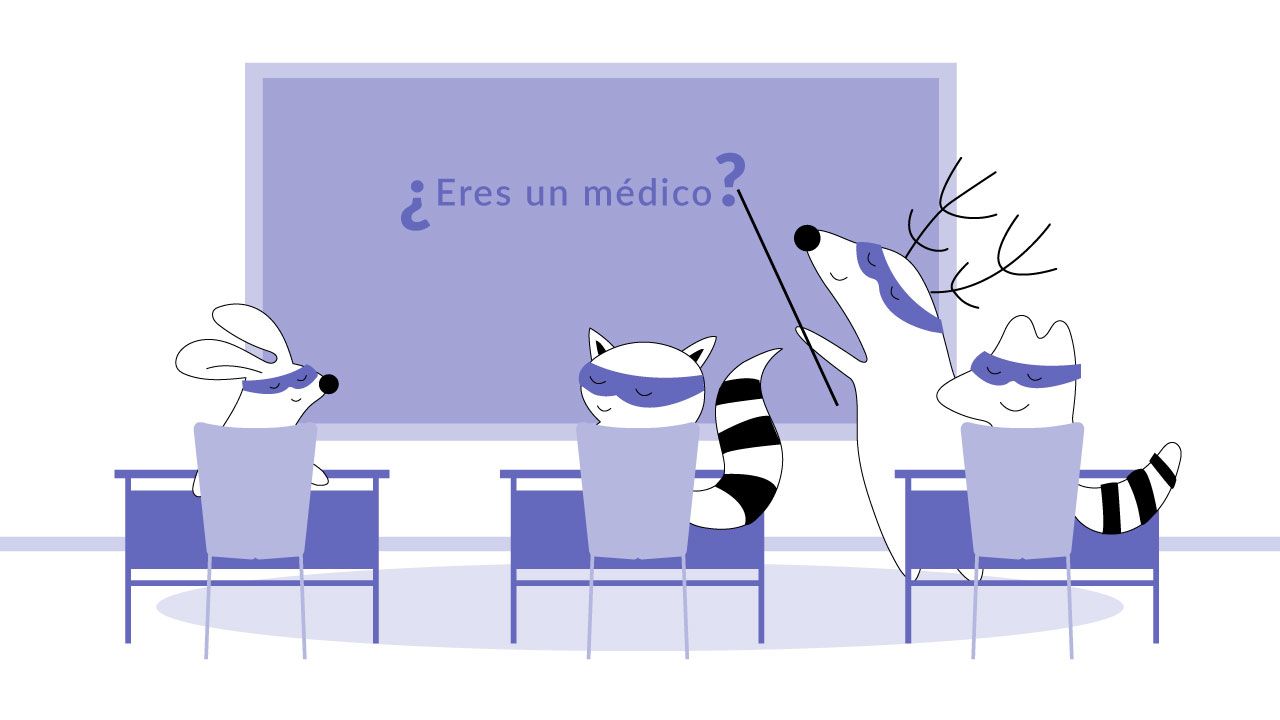
Knowing how to use Spanish question words will make it easier for you to communicate with Spanish speakers. These words are essential for asking questions about specific people, places, or things. With this knowledge, you'll be able to navigate your way through Spanish-speaking countries and converse easily with locals.
Download our Langster app to get more examples of Spanish interrogative sentences along with grammar explanations and boost your Spanish vocabulary. ¡Buena suerte!







